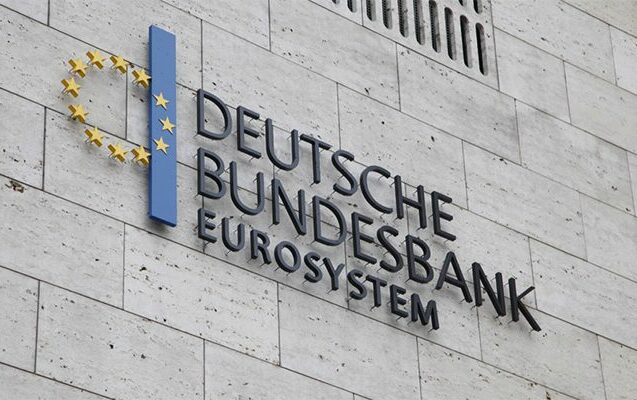What will change in Germany on the post Merkel tax. Le Monde Report

The "traffic light" coalition is negotiating the contours of economic policy in Germany. Here is what the French newspaper Le Monde writes
Hard times for the German conservatives. In a few weeks – writes Le Monde – they have lost one after another all the posts that symbolized their dominion over the country's political institutions in the last 16 years. Since October 26, Christian Democratic Chancellor Angela Merkel has been dealing only with current affairs. The future Social Democratic Chancellor, Olaf Scholz, could be appointed on 6 December.
Wolfgang Schäuble, who embodied budget discipline more than anyone when he was finance minister between 2009 and 2017, has given Bärbel Bas (SPD) his seat in the Bundestag. He is now a mere member of the opposition. And finally Jens Weidmann, president of the Bundesbank, the German central bank, announced on October 20 his resignation for the end of 2021, after a decade of service, six years before the official end of his term.
Of the three places, the loss of the last one is particularly painful for conservatives. The presidency of the Bundesbank, whose appointment is detached from the electoral agenda, should be the embodiment of economic and monetary stability. In the so-called “ordoliberal” tradition, the last ideological point of reference of conservatives in economic matters, a central bank must be independent of political power, little interventionist, and above all guarantee price stability.
This approach, defended tooth and nail by Jens Weidmann on the Governing Council of the European Central Bank (ECB), earned him the nickname "Mr No", due to his opposition to the debt repurchase programs initiated by the former ECB president Mario Draghi.
Weidmann, who is close to Angela Merkel, is considered by the German conservatives to be the last bulwark against a European monetary policy deemed too accommodating and of which they remain convinced that it leads to fiscal laxity and the depreciation of the currency. The current surge in inflation is reigniting this concern.
CRUCIAL NEGOTIATIONS
Who will succeed Jens Weidmann? The question is all the more delicate as it comes in the midst of one of the most significant transitions in recent German history.
For the first time, a tripartite alliance, in which the Conservatives will not sit, will lead Germany. The "traffic light" coalition – made up of the Social Democratic Party (SPD), the Greens and the liberal FDP – is currently negotiating the outlines of its economic policy, despite very different approaches.
The FDP defends the ordoliberal positions, remaining committed to the German and European rules that limit the debt, even if less rigorously than the Christian Democrats. The Greens, on the other hand, advocate a more reformist approach, with the idea that the soundness of public finances is determined not only by the level of public debt, but by the economy's ability to create long-term growth.
In this context, the coalition partners must agree not only on Jens Weidmann's successor, but also on the Minister of Finance, who will give the government the "color" on macroeconomic issues.
Two factors are influencing these crucial negotiations. Across the Rhine, academic debate has evolved in recent years. The new generation of economic thinkers have distanced themselves from their predecessors, moving towards greater pragmatism. The horror of debt is no longer the absolute compass as it was in the 2010s. The idea has taken hold that if a country's interest rate is below its growth rate, it can make sense to borrow to invest.
Especially in the context of an aging Germany that needs to invest in its production capacity if it is to remain competitive and decarbonise quickly. At the European level, the new consensus is that euro area solidity implies more solidarity. Even though the debate is much more open than before, supporters of ordoliberalism remain influential. It is not a question of opening the floodgates of credit without restrictions.
CARDINE ECONOMIC POWER IN EUROPE
Furthermore, international observers are taking an interest in the internal affairs of Germany, which is considered the pivot of economic power in Europe. On October 28, the American economist Joseph Stiglitz, winner of the 2001 Nobel Prize in Economics, and the British historian Adam Tooze, a professor at Columbia University in New York, published a surprising article in Die Zeit in which they put in guard the future government from appointing FDP leader Christian Lindner to the finance ministry.
“The problem is not just that Lindner's economic policy (…) is an accumulation of conservative clichés. More than that, they are clichés of a bygone era, the 90s ”, they write clearly worried about the future of Europe.
To which the economist Clemens Fuest, president of the Ifo Institute of Munich, and the historian Harold James, a professor at Princeton (New Jersey), replied in the same newspaper on November 3 that "in a world where political support for less rigid fiscal rules, a critical and 'hawk' German finance minister can play a useful and balancing role ”.
In Berlin, the outcome of the negotiations on these issues is still open. But the future "tricolor" coalition, which aspires to a "new beginning" for the country and a historic investment effort, knows that stability and consensus are essential components of German political culture. In the past, disruptive policies have more often been driven by pragmatic and credible opponents. Future appointees, as well as their leadership, are to be expected not to deviate from this rule.
(Extract from the foreign press review by Epr Comunicazione)
This is a machine translation from Italian language of a post published on Start Magazine at the URL https://www.startmag.it/economia/che-cosa-cambiera-in-germania-sul-fisco-dopo-la-merkel-report-le-monde/ on Sun, 14 Nov 2021 06:15:56 +0000.
